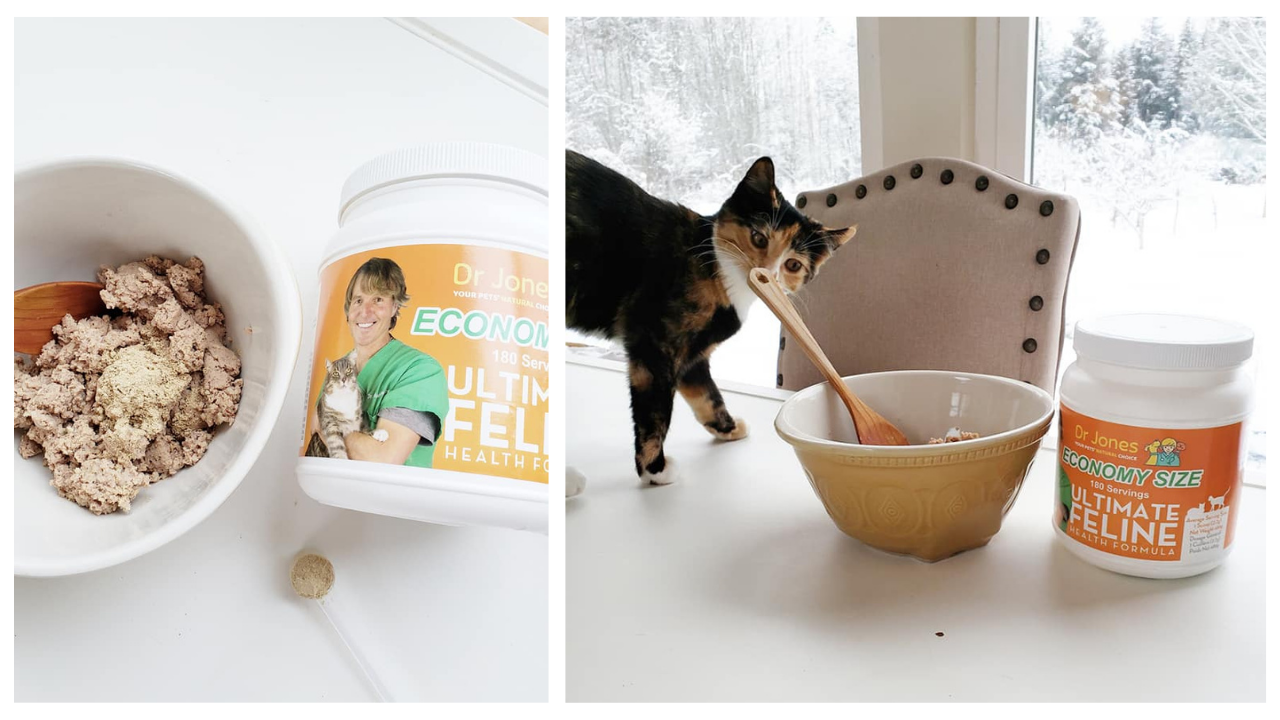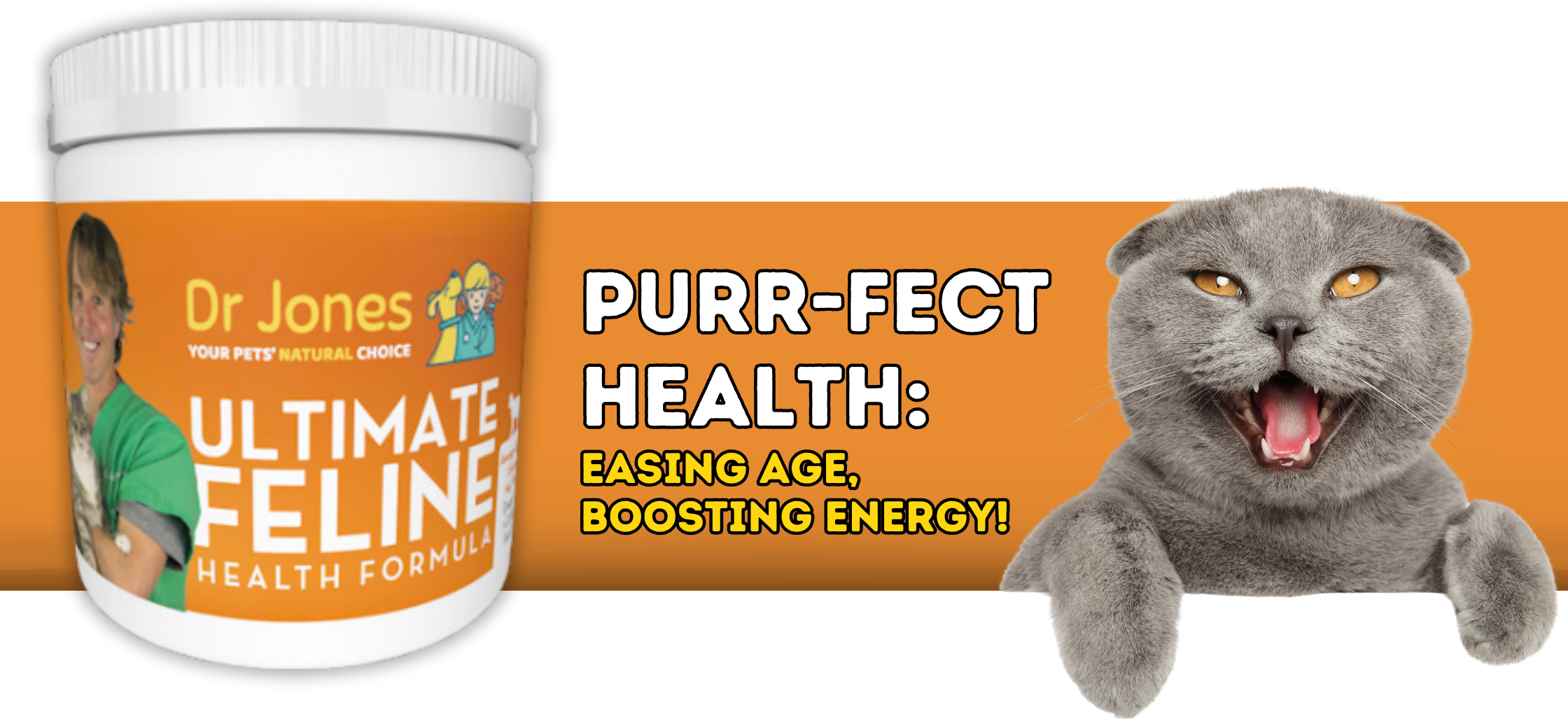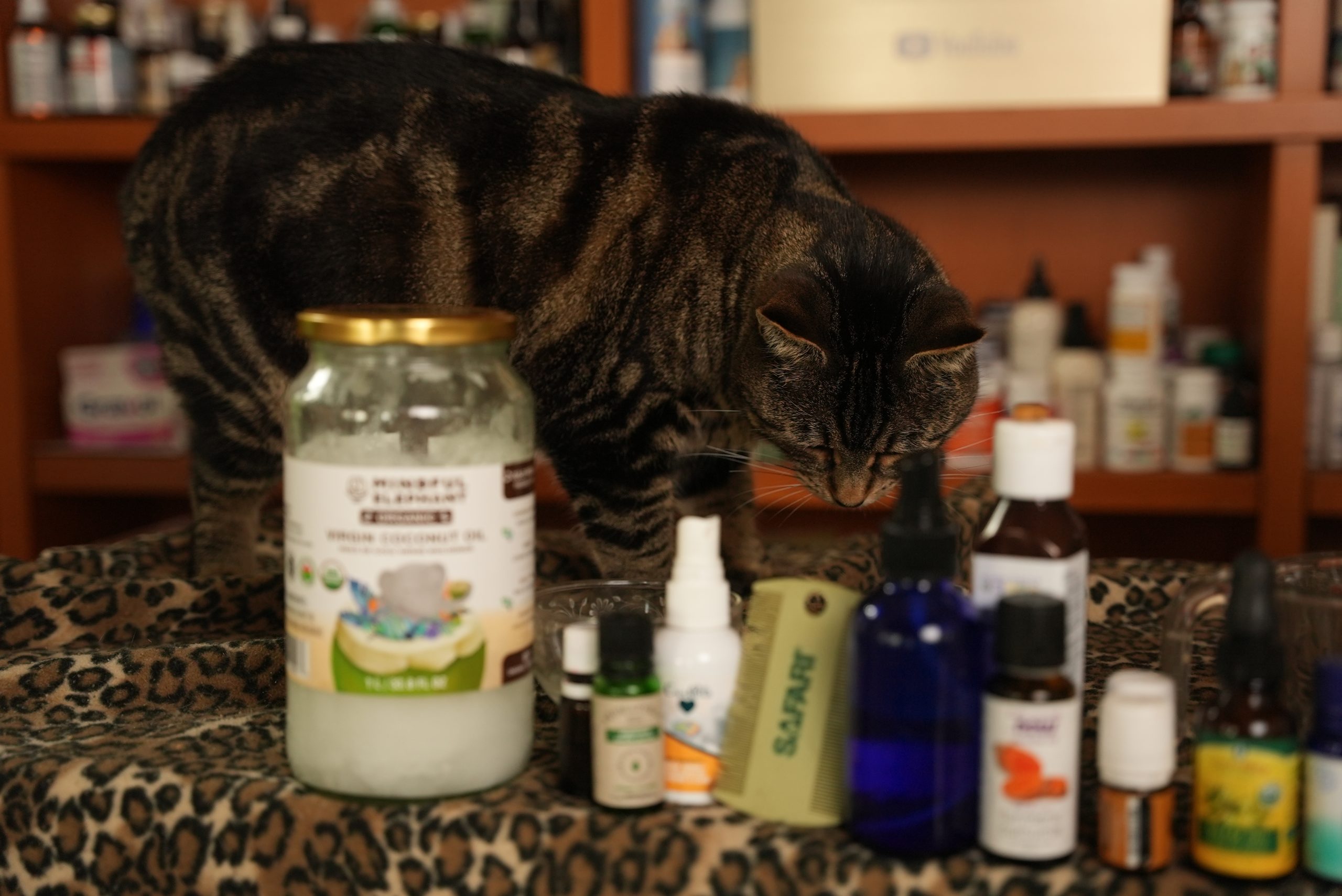Safe Essential Oils for Pets: Top 7 Oils Every Dog & Cat Owner Should Know
![]()
Thinking about using essential oils to support your dog or cat’s health? When used safely, certain oils can calm anxiety, soothe skin issues, and even repel pests. But essential oils alone aren’t enough—they work best as part of a complete wellness plan. That’s why I recommend pairing safe, natural oils with daily nutritional support to keep your pets thriving.
Support your furry friend inside and out—try Dr. Jones’ Ultimate Canine Advanced Plus Health Formula for Dogs and Dr. Jones’ Ultimate Feline Health Formula for Cats for full-spectrum health, from joints and digestion to immunity and coat care.
Try Dr. Jones’ Ultimate Canine Advanced Plus Health Formula for Dogs
If you’re serious about giving your dog the best care possible, check out Dr. Jones’ Ultimate Canine Advanced Plus Health Formula. This all-in-one supplement is packed with vitamins, minerals, and antioxidants designed to support your dog’s digestive health, immune system, joints, and skin. It helps improve mobility, maintain energy, and boost overall vitality—perfect for dogs of all ages, from playful pups to senior companions. With consistent use, you’ll notice a happier, healthier, and more energetic dog ready to enjoy every day by your side.


Try Dr. Jones’ Ultimate Feline Health Formula for Cats
Cats are natural athletes with unique dietary needs, and their health relies on a balanced blend of nutrients. Dr. Jones’ Ultimate Feline Health Formula is crafted specifically for cats to support their delicate digestive system, strengthen immunity, promote healthy skin and coat, and maintain lean muscle mass. With essential vitamins, antioxidants, and fatty acids, it helps your cat stay active, playful, and resilient, while also supporting long-term wellness. It’s the perfect daily boost to keep your feline friend feeling their absolute best.


Essential Oils for Dogs and Cats: What’s Safe and How to Use Them
Curious about essential oils for your pets? Wondering which ones are safe for dogs, which ones are okay for cats, and how to use them without causing harm? You’ve come to the right place. In this guide, I’ll show you how to safely incorporate essential oils into your pet’s wellness routine.
What Are Essential Oils?
Essential oils are concentrated plant oils packed with hundreds of organic compounds. They come from the stems, leaves, flowers, or roots of plants. When used correctly, they can provide amazing benefits for pets. But because they’re so concentrated, improper use—like applying undiluted oils topically or letting your pet ingest them—can cause serious reactions.
The key is choosing the right oil and using it appropriately. With the correct precautions, essential oils can be very safe and beneficial.
Essential Rules for Safe Use
Here are some general guidelines to keep your pets safe:
1. External Use Only
Never allow your pet to ingest essential oils. Don’t apply oils where your dog or cat can lick them off, such as paws or fur near their mouth.
2. Dilution Matters
Studies show that a 2% dilution or less is considered safe for dogs and cats. Mix essential oils with a carrier oil, like coconut or sweet almond oil, to reduce risk. Undiluted oils are where most problems arise.
3. Monitor for Reactions
Watch your pet closely when introducing a new oil:
-
Topical use: Look for skin irritation or redness.
-
Diffusers: Observe for respiratory reactions.
-
Accidental ingestion: Watch for drooling, vomiting, or lethargy.
Tea tree oil is an example of an essential oil I generally avoid. Undiluted, it can cause depression, tremors, seizures, and even death in severe cases.
4. Wash Off Irritation Properly
If skin becomes red or irritated, use soap to remove the oil, not just water. Castile soap works well, but dish soap is fine too.
5. Avoid Sensitive Areas
Keep oils away from eyes, mouth, nose, and ears.
6. Special Caution for Cats
Cats are much more sensitive to essential oils and groom themselves frequently, which increases the risk of ingestion. Always use extra caution and only use oils that are safe for cats.
Top 7 Essential Oils I Use Safely with Pets
1. Lavender Essential Oil
-
Benefits: Antibacterial, antifungal, antihistamine, and calming properties.
-
How I use it: For cognitive dysfunction in cats, like my late cat Gussy, I used a diffuser with 1 cup of water + 20 drops (<1% dilution). She slept through the night with no issues.
-
Topical use: Mix with a carrier oil to help heal skin infections.
2. Chamomile Essential Oil
-
Benefits: Calming, mild antihistamine, promotes relaxation.
-
How I use it: Via diffuser, 1 cup water + 20 drops in an open space. Cats and dogs can leave the room if it’s too strong.
3. Cedarwood Essential Oil
-
Benefits: Natural insect repellent, safe when diluted.
-
How I use it: 2% dilution in coconut oil + witch hazel. Apply as a topical spray to repel ticks and fleas.
4. Frankincense Essential Oil
-
Benefits: Anti-inflammatory, anti-arthritic, anxiety relief, immune support.
-
How I use it: Mix 10 drops in 2 tbsp sweet almond oil, then rub on areas like a dog’s spine or joints to relieve discomfort.
5. Neem Oil
-
Benefits: Anti-parasitic, effective flea and tick repellent.
-
How I use it: 3 tbsp coconut oil + 3 tbsp witch hazel + 20 drops neem oil, lightly mist your pet once a week (cats) or twice a week (dogs), then comb through fur.
6. Turmeric Essential Oil
-
Benefits: Anti-inflammatory, natural tick repellent.
-
How I use it: 2 tbsp coconut oil + 20 drops turmeric oil, apply along the neck and spine, similar to natural flea products. Not recommended for cats.
7. Catnip Essential Oil
-
Benefits: Flea repellent, calming effect.
-
How I use it: Lightly mist cat with nepetalactone-based catnip spray, avoiding eyes and mouth. Use once a week, and comb through fur gently.
Key Takeaways
Yes, essential oils can be safe for dogs and cats—as long as you follow these rules:
-
Avoid ingestion.
-
Dilute oils properly.
-
Monitor your pet for reactions.
-
Avoid sensitive areas and use soap to wash off irritation.
-
Exercise extra caution with cats.
Used correctly, essential oils can support skin health, repel pests, calm anxiety, and provide immune support.
Click To Get A Free Copy of My E-Book!

Try Dr. Jones’ Ultimate Canine Advanced Plus Health Formula for Dogs
If you’re serious about giving your dog the best care possible, check out Dr. Jones’ Ultimate Canine Advanced Plus Health Formula. This all-in-one supplement is packed with vitamins, minerals, and antioxidants designed to support your dog’s digestive health, immune system, joints, and skin. It helps improve mobility, maintain energy, and boost overall vitality—perfect for dogs of all ages, from playful pups to senior companions. With consistent use, you’ll notice a happier, healthier, and more energetic dog ready to enjoy every day by your side.

Try Dr. Jones’ Ultimate Feline Health Formula for Cats
Cats are natural athletes with unique dietary needs, and their health relies on a balanced blend of nutrients. Dr. Jones’ Ultimate Feline Health Formula is crafted specifically for cats to support their delicate digestive system, strengthen immunity, promote healthy skin and coat, and maintain lean muscle mass. With essential vitamins, antioxidants, and fatty acids, it helps your cat stay active, playful, and resilient, while also supporting long-term wellness. It’s the perfect daily boost to keep your feline friend feeling their absolute best.



















Dr Jones
Thank you for sharing your knowledge! I follow you and have a few questions..
I want make your flea spray..
Where should I purchase the neem oil?
I have used Doterra essential oils but found they became too expensive.
Do you have a suggestion for purchase of essential oils?
One of my dogs is a Yorkie.. She has itcy ears, licks her paws.
I have her and the other 2 dachhunds on grain free kibble-helps their skin and they are on your digestive enzymes.
The vet told me its from the food for the yorkie. Do you have a suggestion of what type of food I should switch her to?? Or should I? Grain free or grain???
I agree with your treatment plans -I had a run in with my vet about the vaccines he would give but held my ground after reading your evidence. lol
Thank you so much I appreciate you.
Sue Sikorski
For neem oil (for a flea spray), you can buy pure cold-pressed neem oil from reputable herb or essential oil suppliers (online or local health-food shops). Make sure it’s labeled 100% pure and for external use in animals.
For essential oils, pick ones listed as safe in the Veterinary Secrets guide (like lavender, cedarwood, etc.), always dilute to ~2% with a carrier oil like coconut oil, and avoid “hot” oils (like oregano, thyme, tea tree) especially around mouth, nose, and ears.
About food: whether grain-free or grain-inclusive depends on if there’s a confirmed problem. Grains are rarely the cause of food allergy—usually the protein is. But grain-free diets can help if protein source is limited or novel. Grains also provide fiber & nutrients, so unless your Yorkie is proven allergic to a grain, you could try a food with a novel protein + moderate grain, then observe response.
You cannot be serious saying Lavender is safe for cats it is toxic and has no place in a home with cats candles incense oils diffuser. toxic
Cedar wood? Again toxic to dogs and cats.
Need oil! Certain breeds can even get blisters (Pug, Frenchie, example
lavender (lavandula angustifolia) and cedarwood (cedrus atlantica/cedrus deodara) among the “top 7 essential oils pet owners should know,” are among the safer ones when diluted properly.Always dilute heavily and monitor for adverse reactions.